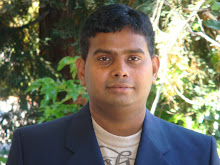These are from a book called "Disorder in the Court."
These are things people actually supposed to have said in court, word for word, taken down and now published by court reporters - who had the torment of staying calm
while these exchanges were actually taking place.
Q: What is your date of birth?
A: July fifteenth.
Q: What year?
A: Every year.
Q: What was the first thing your husband said to you when he woke up that
morning?
A: He said, "Where am I, Cathy?"
Q: And why did that upset you?
A: My name is Susan.
Q: And where was the location of the accident?
A: Approximately milepost 499.
Q: And where is milepost 499?
A: Probably between milepost 498 and 500.
Now doctor, isn't it true that when a person dies in his sleep, he doesn't
know about it until the next morning?
Q: Were you present when your picture was taken?
Q: She had three children, right?
A: Yes.
Q: How many were boys?
A: None.
Q: Were there any girls?
Q: How was your first marriage terminated?
A: By death.
Q: And by whose death was it terminated?
Q: Can you describe the individual?
A: He was about medium height and had a beard.
Q: Was this a male or a female?
Q: Doctor, how many autopsies have you performed on dead people?
A: All my autopsies are performed on dead people.
Q: Do you recall the time that you examined the body?
A: The autopsy started around 8:30 p.m.
Q: And Mr. Dennington was dead at the time?
A: No, he was sitting on the table wondering why I was doing an autopsy.
Q: Doctor, before you performed the autopsy, did you check for a pulse?
A: No.
Q: Did you check for blood pressure?
A: No.
Q: Did you check for breathing?
A: No.
Q: So, then it is possible that the patient was alive when you began the
autopsy?
A: No.
Q: How can you be so sure, Doctor?
A: Because his brain was sitting on my desk in a jar.
Q: But could the patient have still been alive nevertheless?
A: Yes, it is possible that he could have been alive and practicing law
somewhere
Labels:
jokes SMS
Subscribe to:
Post Comments (Atom)

0 comments:
Post a Comment